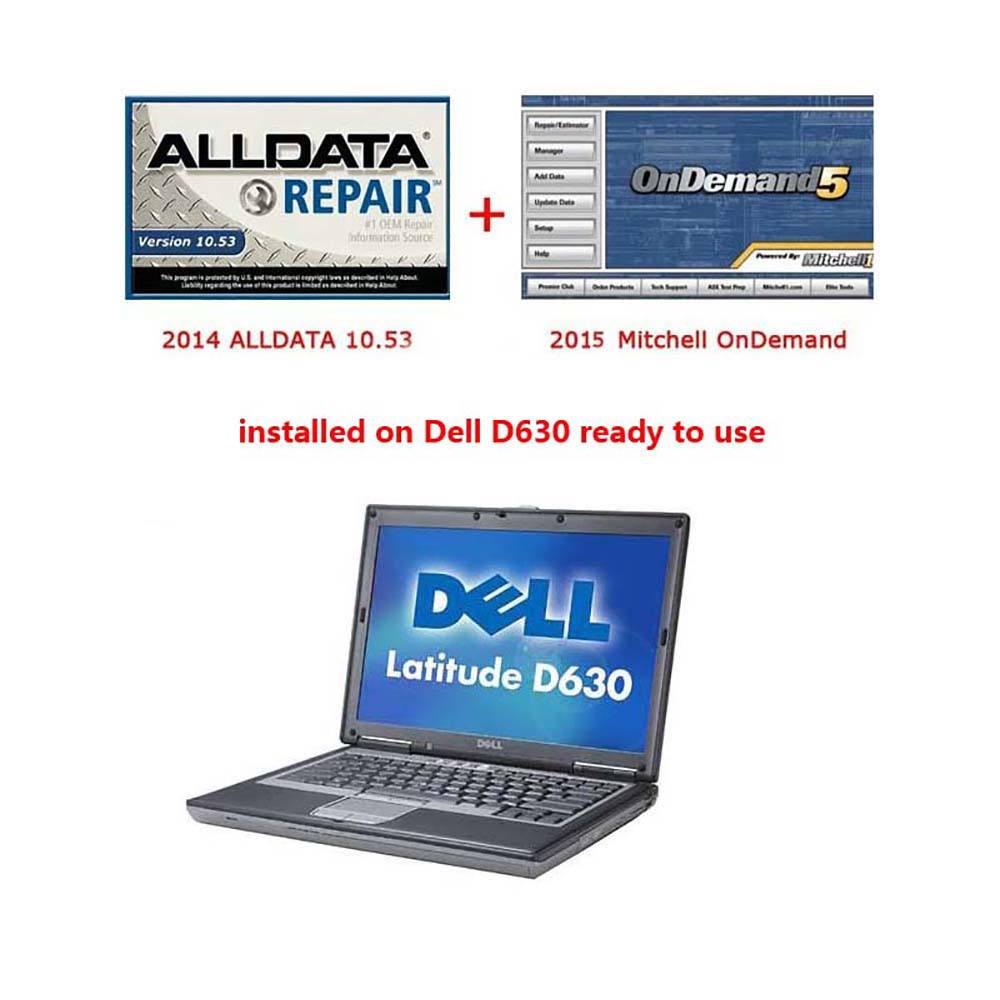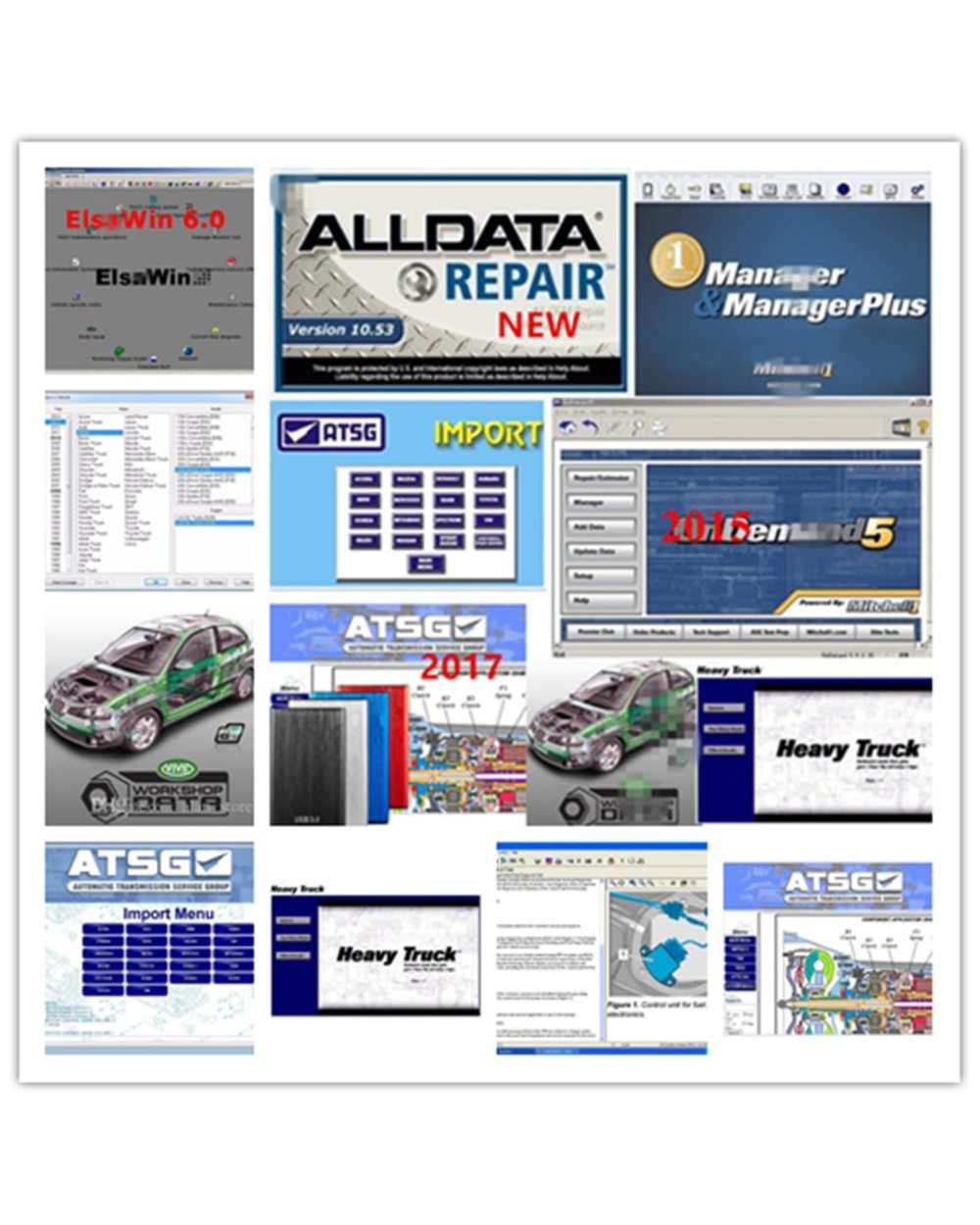When it comes to choosing the right automotive repair software, you want a tool that fits your workflow, boosts your efficiency, and helps you get the job done right every time. That’s why comparing AllData vs Mitchell matters—both are popular choices, but they serve different needs.
Are you looking for deep, detailed OEM data to tackle complex repairs? Or do you prefer an easy-to-use system with strong business management features to keep your shop organized? You’ll discover the key differences between AllData and Mitchell, so you can decide which one matches your skills, your team, and your goals perfectly.
Keep reading to find out which software can truly transform your repair process and help your business thrive.

Credit: www.obdii.shop
Software Features
The software features of Alldata and Mitchell shape the user experience for automotive professionals. Each platform offers tools and data designed to aid repair and service tasks. Understanding their features helps users pick the right fit for their needs.
Navigation And Ease
Alldata provides a clean layout with simple menus. Users find it easy to move between sections and locate information quickly. Mitchell offers a modern interface with clear icons and shortcuts. It helps new users get up to speed faster. Both platforms prioritize user-friendly design but differ slightly in structure.
Information Access
Alldata delivers detailed OEM repair information straight from manufacturers. It covers a broad range of vehicles and models. Mitchell also offers solid repair data but focuses more on summarized, easy-to-understand instructions. Alldata suits technicians needing deep data. Mitchell works well for those wanting quick, clear answers.
Wiring Diagrams
Alldata includes wiring diagrams that are very detailed and close to OEM standards. Technicians get clear visuals for complex electrical systems. Mitchell provides standardized wiring diagrams that are easier to read. These diagrams help users follow circuits without confusion. Each tool supports accurate electrical repairs in different ways.
Business Management Tools
Mitchell excels in business features like customer management, invoicing, and scheduling. These tools streamline shop operations and improve communication. Alldata offers some business tools but focuses more on repair data. Shops wanting integrated business solutions may prefer Mitchell. Those focused on technical data might lean toward Alldata.
User Experience
User experience plays a key role in choosing between Alldata and Mitchell. It affects daily work efficiency and satisfaction. Understanding each software’s design, ease of learning, and user preferences helps make a better choice.
Interface Design
Alldata offers a clean and straightforward layout. Its menus are organized by vehicle systems and repair types. This helps users find information quickly without confusion.
Mitchell features a modern and colorful interface. Icons and tabs guide users through different functions. Its dashboard provides quick access to important tools and reports.
Learning Curve
Alldata has a moderate learning curve. Experienced technicians pick it up faster due to its technical depth. Beginners may need time to explore all OEM details.
Mitchell is easier for new users. Its step-by-step prompts and simpler language support fast learning. This suits shops with less experienced staff or high turnover.
User Base Preferences
Many veteran mechanics prefer Alldata for its detailed OEM repair data. It matches their technical knowledge and need for accuracy.
Small to mid-size shops often choose Mitchell for its business tools. Features like customer management and invoicing streamline operations.
Both software serve different user needs. Choice depends on work style, skill level, and shop priorities.
Pricing And Plans
Pricing and plans are key factors when choosing between Alldata and Mitchell. Each service offers different options tailored to various users. Understanding these helps you pick the best fit for your needs and budget.
Alldata Subscription Options
AllData offers several subscription plans. Professionals often choose AllData Repair, Collision, or Tech-Assist. These provide detailed OEM repair information and diagnostics. There is also AllData Shop Manager for managing shop workflow and customers. For individuals, AllData DIY is available. It focuses on simple, clear instructions for home repairs. Subscription fees vary based on the package and features. Monthly or annual billing is possible. This flexibility suits different user types and budgets.
Mitchell Pricing Structure
Mitchell’s pricing depends on the chosen modules and service level. The base plan includes repair information and wiring diagrams. Additional features cover estimating, customer management, and parts ordering. Mitchell often bundles these for shops needing all-in-one solutions. Pricing is typically subscription-based with monthly or yearly options. Some plans require contacting sales for a quote. This approach fits shops wanting tailored business tools. The cost reflects the wide range of included services.
Diy Vs Professional Use
AllData DIY targets car owners and hobbyists. It offers easy repair guides and maintenance tips. Pricing is affordable for personal use. In contrast, professional plans focus on detailed data and shop management tools. Mitchell mainly suits repair shops and professionals. Its features support efficient workflow and customer service. Pricing reflects these business-focused capabilities. Choosing depends on your role and repair needs. DIY users benefit from simple guides and lower costs. Professionals need comprehensive data and management options.
Industry Adoption
The adoption of automotive repair software varies across the industry. Shops and dealerships choose tools that fit their specific needs. Both Alldata and Mitchell have strong followings, but their usage differs by type of business. Understanding who uses each can help shops decide which software suits them best.
Dealership Usage
Dealerships often prefer Alldata. It offers detailed OEM repair information for many car brands. This data helps technicians perform accurate repairs. The software also updates frequently with the latest factory information. Dealerships value this accuracy and completeness. Alldata’s interface is designed for fast access to complex data. This suits dealership environments where efficiency is key. Technicians rely on Alldata to maintain warranty standards and factory procedures.
Independent Shop Preferences
Independent shops tend to favor Mitchell. It provides easy-to-understand wiring diagrams and repair instructions. Mitchell also includes tools for managing customer relations and invoicing. These features help smaller shops run smoothly. The software is user-friendly for less experienced technicians. Mitchell offers strong support for common repairs and diagnostics. Independent shops appreciate its balance of technical and business tools. This combination helps shops improve service quality and customer satisfaction.
Data Quality
Data quality plays a key role in choosing between Alldata and Mitchell. Accurate, clear information saves time and reduces errors. Both platforms offer extensive repair data, but differences exist in how precise and standardized their content is.
Good data quality ensures technicians can trust the information. It affects repair accuracy and customer satisfaction. Let’s examine two important aspects: OEM information accuracy and diagram standardization.
Oem Information Accuracy
Alldata provides detailed OEM data directly from manufacturers. This information is highly accurate and updated regularly. It helps technicians follow exact repair procedures and use correct parts.
Mitchell also offers OEM-based data but with some variations. Its data may simplify complex details to improve ease of use. This can speed up repairs but may lack some depth found in Alldata.
For shops focusing on precise manufacturer instructions, Alldata’s OEM accuracy is a strong advantage. Mitchell suits those who prefer straightforward and easy-to-understand data.
Diagram Standardization
Mitchell excels in providing standardized wiring and repair diagrams. These diagrams have a consistent look and format across different vehicle makes. This uniformity helps users quickly find needed information.
Alldata offers OEM diagrams that match manufacturer styles. These can vary widely between brands and models. Some technicians prefer this for its authenticity, while others find it less user-friendly.
Shops that value clear, uniform visuals may lean toward Mitchell. Those wanting exact OEM diagrams often choose Alldata for its originality.

Credit: www.obdii.shop
Business Tools Comparison
Choosing the right business tools can boost your shop’s efficiency. Both Alldata and Mitchell offer valuable features. Comparing their tools helps you decide which fits your needs best. Below, we explore key business tools that impact daily operations.
Customer Relationship Management
Mitchell provides strong customer management features. It helps track customer information easily. You can schedule appointments and send reminders. Alldata focuses less on CRM but offers basic contact management. Mitchell’s tools simplify communication with clients. This helps build trust and repeat business.
Reporting And Analytics
Alldata offers detailed repair data and service history reports. These help analyze shop performance over time. Mitchell includes built-in analytics for labor and parts usage. It offers clear charts and summaries for quick reviews. Both tools give insights but Mitchell’s reports are easier to read for beginners.
Parts And Labor Tracking
Mitchell excels in tracking parts and labor costs. It allows accurate invoicing and job costing. Alldata also supports parts identification but focuses more on repair procedures. Mitchell’s system reduces errors in billing and improves profit tracking. This feature helps keep your shop organized and profitable.
Alternatives And Competitors
Choosing between Alldata and Mitchell means knowing about other options. Many software tools compete for auto repair shops’ attention. These alternatives offer varied features and pricing. Understanding them helps shops pick the best fit. The market has solutions for repair information and shop management. Each competitor targets different needs and shop sizes.
Shop Management Software
Shop management software helps run daily operations smoothly. Programs like Shopmonkey, Tekmetric, and Shop-Ware provide scheduling, invoicing, and customer tracking. AutoLeap and Fullbay focus on fleet and heavy-duty repair shops. These tools improve efficiency and communication within the shop. They offer dashboards to monitor job progress and technician performance. Many include mobile apps for remote access. Shops can manage inventory, parts ordering, and labor tracking too. These systems often integrate with repair information databases.
Other Auto Repair Solutions
Besides Alldata and Mitchell, other repair information providers exist. Identifix offers a strong database with verified fixes and diagnostics. ProDemand combines OEM data with repair procedures and labor guides. Some shops use free or low-cost options with limited coverage. Many solutions vary in update frequency and data depth. User interface and ease of navigation also differ widely. Some platforms focus on collision repair, others on mechanical repairs. Each has pros and cons based on shop requirements and budget.

Credit: www.youtube.com
Frequently Asked Questions
What’s Better Than Alldata?
Shopmonkey is considered better than ALLDATA for its reliability, ease of use, and comprehensive shop management features. Other strong alternatives include Tekmetric, Shop-Ware, AutoLeap, and Fullbay. The best choice depends on your specific needs and preferences.
How Much Does Alldata Cost Per Month?
ALLDATA costs approximately $40 to $60 per month for DIY users. Professional subscriptions vary from $100 to $300 monthly. Pricing depends on the package and usage needs. Visit ALLDATA’s official site for exact, updated pricing details.
Who Owns Mitchell On Demand?
Mitchell OnDemand is owned by Snap-on Tools, Inc. , headquartered in Poway, California. Snap-on acquired and manages this automotive repair software.
Do Dealerships Use Alldata?
Yes, many dealerships use ALLDATA for its comprehensive OEM repair information. It helps technicians perform accurate and efficient repairs. ALLDATA provides detailed, up-to-date data for all vehicle makes and models, supporting dealership service departments effectively.
What Is The Main Difference Between Alldata And Mitchell?
Alldata offers detailed OEM repair data, while Mitchell focuses on business tools and simplified wiring diagrams.
Conclusion
Choosing between Alldata and Mitchell depends on your specific needs. Alldata offers detailed OEM information for skilled technicians. Mitchell provides easy-to-use tools and strong business features. Shops focused on customer management may prefer Mitchell. Those needing deep repair data might choose Alldata.
Both platforms help improve repair accuracy and efficiency. Consider your skill level and shop priorities carefully. This ensures you pick the best fit for your work.

















